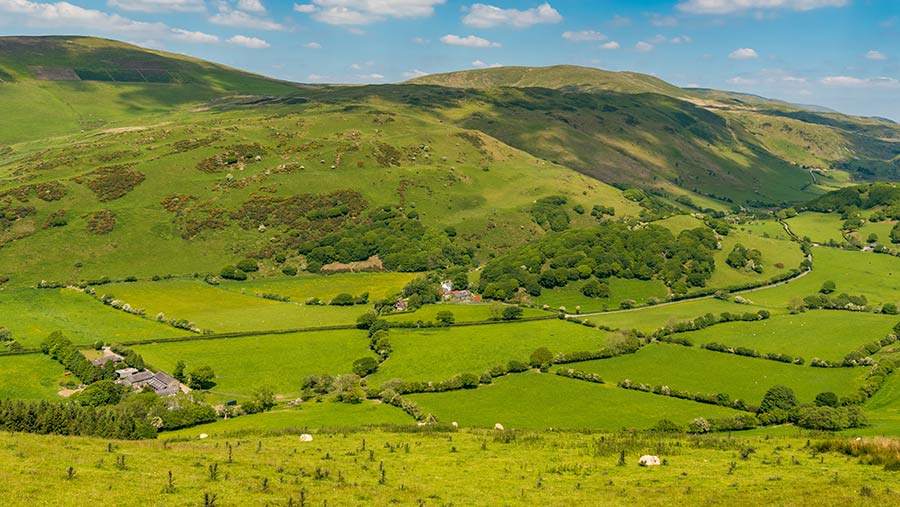‘Sustainable Farming Scheme must deliver for nature’ – WWF
 © Adobe Stock
© Adobe Stock Wildlife campaigners have called on the next Welsh government to ensure that at least 50% of the Sustainable Farming Scheme (SFS) budget is spent on the “optional layer” of additional environmental actions by 2030.
The final version of the scheme, which will replace the current legacy Basic Payment Scheme (BPS), is due to be announced in the next few weeks by the Welsh government.
WWF Cymru, as part of its Senedd Election 2026 manifesto, says that the next government must incentivise, and require the adoption of nature and climate-friendly farming methods, such as organic, regenerative, agroecological or agroforestry systems.
See also: Wales urged to learn lessons from England’s SFI blunders
“By setting payment rates correctly, and fostering a rapid transition to the new scheme, the Welsh government has the power to put Welsh farming on a sustainable footing for future generations,” said a WWF Cymru spokesman.
Payment rates
The group demands that 50% of the overall scheme budget should be allocated to the optional layer.
Exact details of what is required in this layer are yet to be finalised, but could include actions such as mob-grazing, covering slurry stores, drying poultry manure, and growing crops that reduce a farm’s reliance on bought-in feed.
NFU Cymru however disagrees, arguing that the more basic “universal layer” of options under SFS must attract the same level of funding as the previous BPS – the vast majority of funding.
“The universal action layer of the scheme must provide at least the same level of stability to farm businesses, rural communities and the supply chain as the BPS does currently,” said an NFU Cymru spokesman.
Recognising the additional costs associated with undertaking the actions in the universal layer, the union said it would expect the budget to be at the very least equivalent to BPS Pillar 1 funding of £238m.
Sustainable Farming Scheme – details so far
The SFS is divided into three tiers: universal, optional and collaborative.
Universal
The universal layer requires farmers to complete 12 universal actions to qualify for entry-level payment.
Optional
This optional layer is set to help farmers bump up their payments through a series of targeted actions.
This may include actions on productivity, sustainable farm practice and habitat restoration.
Collaborative
The collaborative layer will target groups of farmers working together to deliver “public goods” at a landscape, catchment or national scale – for example, improving water quality.
